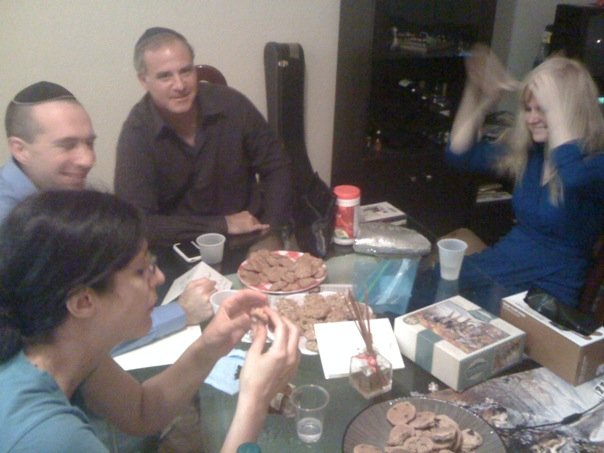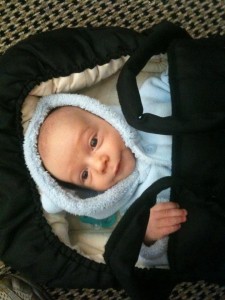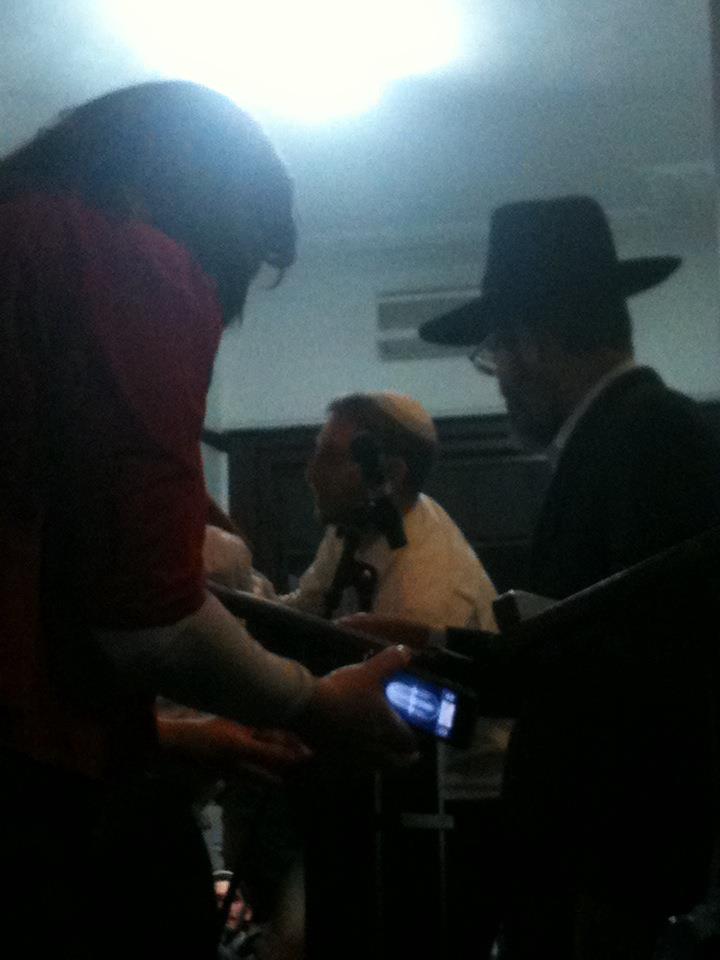Parshas Eikev: Honoring Akiva – The Power of the Heel
 I can’t help but want to dedicate this week’s parsha post to my son, Akiva. Just try saying the names together… Eikev… Akiva. Notice the similarity? It’s no coincidence: they’re from the same root word. Add a yud in front and you even have the name Yaakov. And what do they mean? All three relate to the heel, as in the heel of the foot.
I can’t help but want to dedicate this week’s parsha post to my son, Akiva. Just try saying the names together… Eikev… Akiva. Notice the similarity? It’s no coincidence: they’re from the same root word. Add a yud in front and you even have the name Yaakov. And what do they mean? All three relate to the heel, as in the heel of the foot.
In Judaism we believe that the name of a person is powerful. Just saying it gives life to the soul. So it is kind of understandable that when I told my mother that her first grandchild’s name means “heel” she asked if there isn’t some other meaning? Calling someone “heel” sounds kind of disappointing.
But if the heel is an important component of the name of Yaakov (Jacob) then it’s bound to have some deep, positive significance. And it does, on several levels.
Akiva, being the heel, means to draw G-d down even to the most base parts of life. Even to the heel, which is low down and stands on the ground, we must draw down Hashem. Similarly, the mitzvot reiterated in this week’s parsha involve drawing Hashem down, into even the simplest and most detailed parts of our lives. We start out the parsha with a list of blessings and curses. They seem materialistic but only because we have to remember to involve G-d in our material lives as well. We can’t live without food, shelter, and clothing, so they are also important – and we have to bring G-d into them, too. And the reminisces of Moshe in the parsha – recalling the sins of the Jewish people – are examples of times when the Jews forgot to bring G-d down into their heels and they ran instead after calves of gold and cried over erroneous stories from spies.
Kabbalistically, the heel is also a part of the body that is not subject to impulses and sudden flights of fancy. It’s not like the eyes, flicking this way and that, or the hands, reaching out to grab something suddenly. No, it is slow and steady. Reliable. Dependable. And it wants to do only that which we will it to do – what G-d wants of us – to follow the Torah. For the further from the head it is, the further it is from our trick-playing intellect. The heel knows who is its maker.
But there’s another meaning for Eikev, and another significance for our Akiva: it is used to describe the days before the coming of Moshiach. Just as our Akiva has come to join us, we believe, please G-d, on the heels of Moshiach, he will live a life fit for someone of this stature. For we learn that when the Messiah is to come, the Jews will surely follow G-d’s commandments. So we hope that our Akiva will, please G-d, grow to be a tzaddik, and will walk in the ways of G-d and in the footsteps of Moshiach.
May we all merit to see the days of Moshiach arrive speedily in our time.
Read more on Parshas Eikev: G-d Keeps His Promises
Read More







